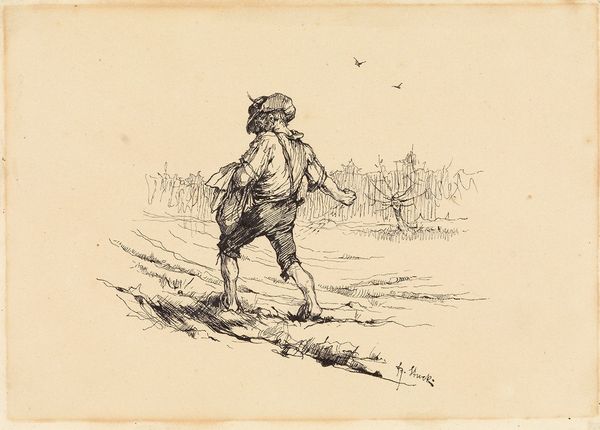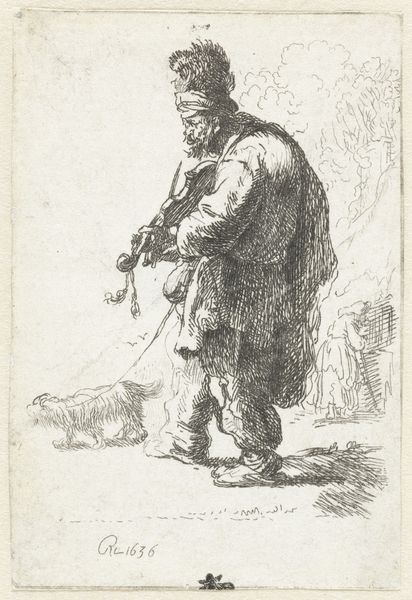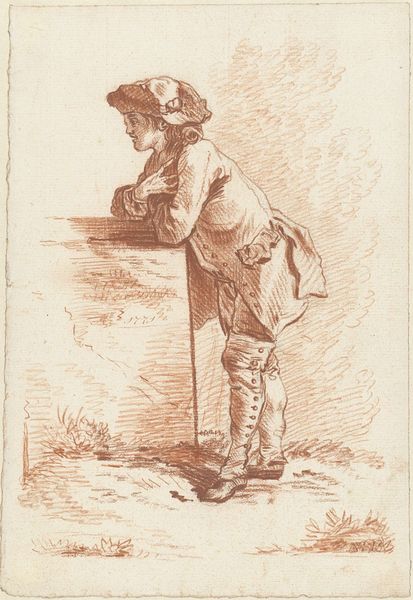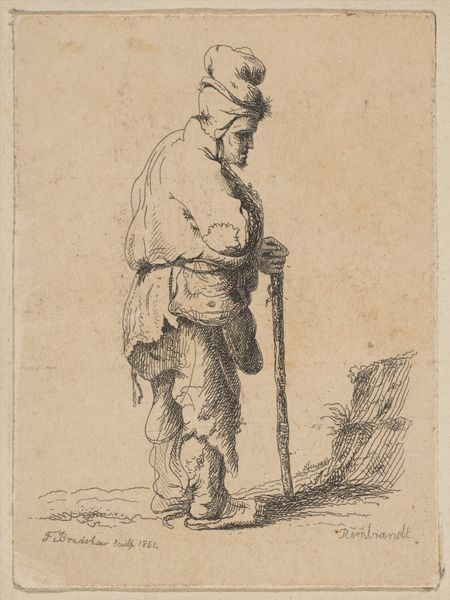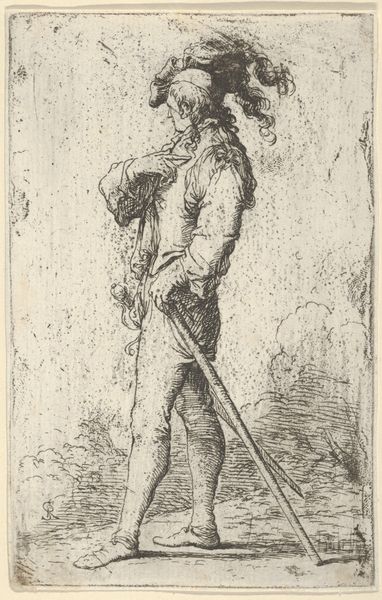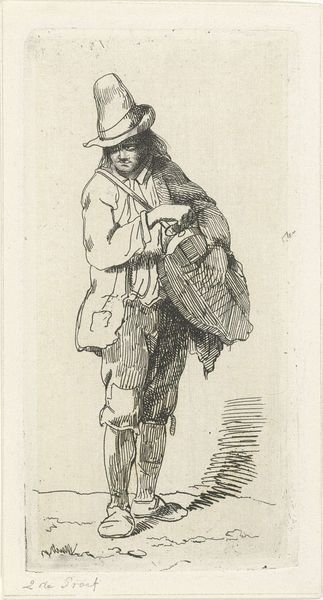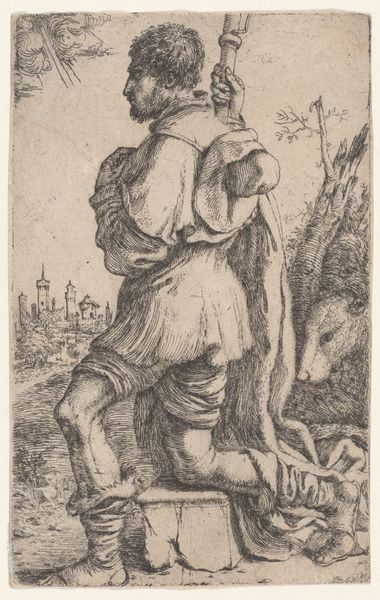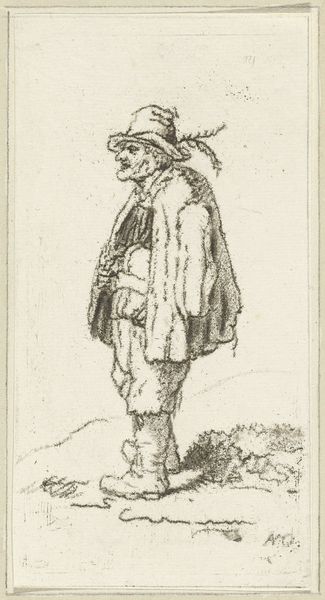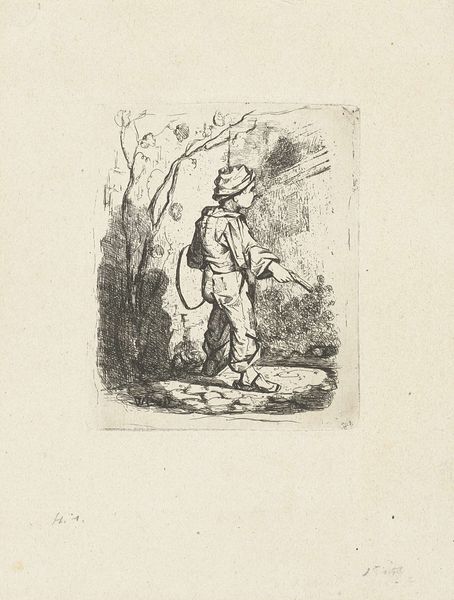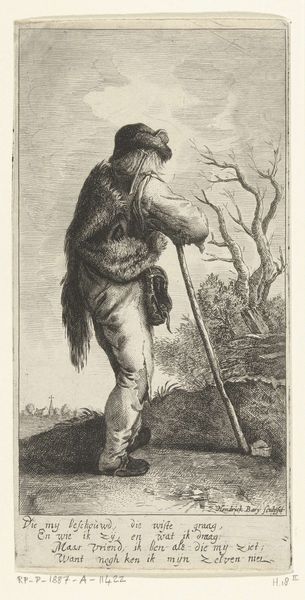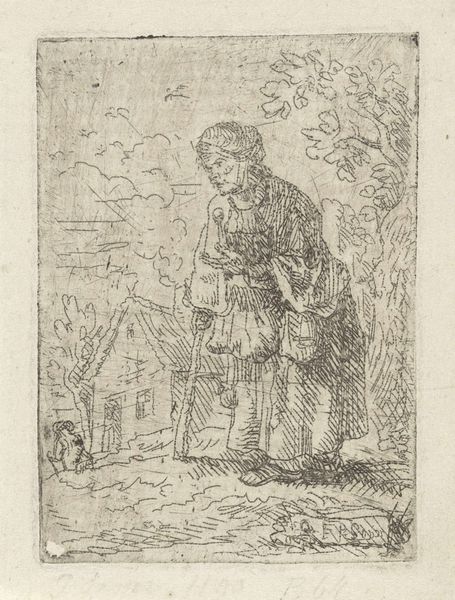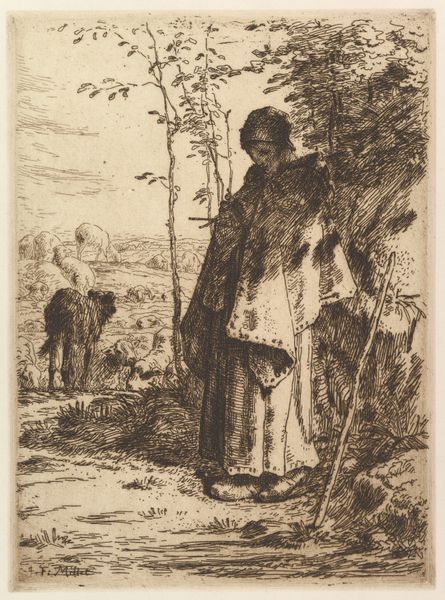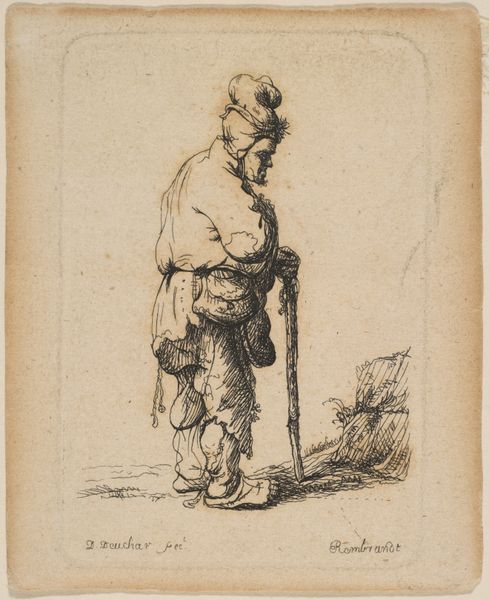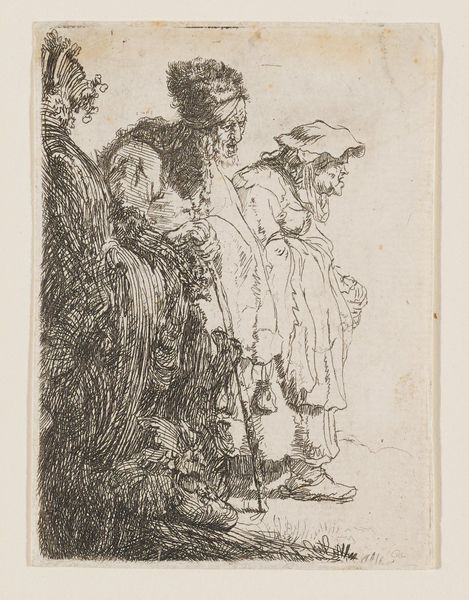
Dimensions: height 179 mm, width 132 mm
Copyright: Rijks Museum: Open Domain
This etching of a figure seen from behind was created in the 17th century by an artist known only by the initials PG. The image presents a lone man with a walking stick, set against a sparse landscape of muted tones. This is a period of significant social stratification in the Netherlands. The image participates in a visual culture in which those lower down the social scale were often the object of pity, satire, or moralizing stories. The angle of vision invites us to look at the figure, and by extension look down on him. The bare feet, simple clothing and walking stick all speak of a life of poverty and itinerancy. The nearby tree perhaps represents a source of shelter, but might also be a reference to the gallows. Understanding this print requires that we attend to the social and economic structures of the time, and the institutional context of printmaking. You can find out more in the museums’ collection records and the artist's biographies.
Comments
No comments
Be the first to comment and join the conversation on the ultimate creative platform.
